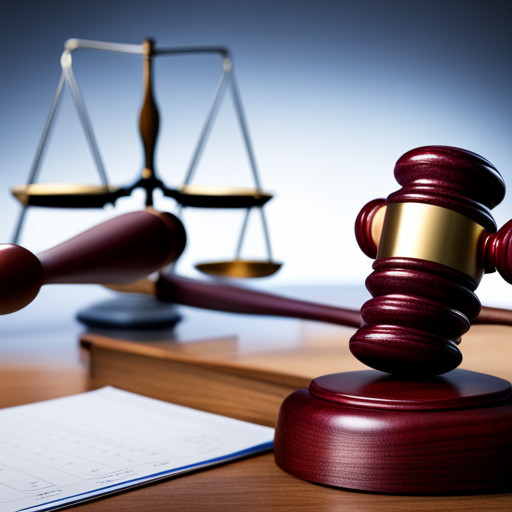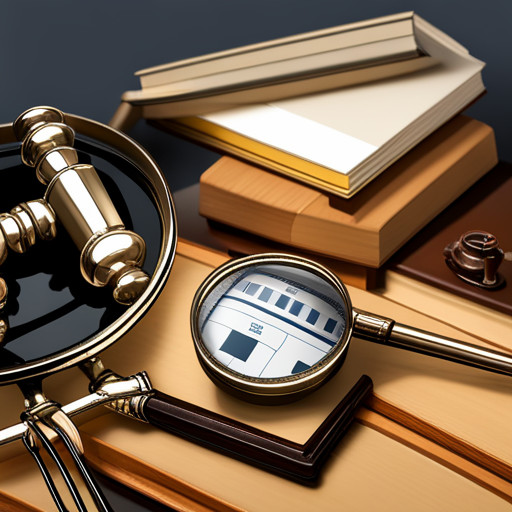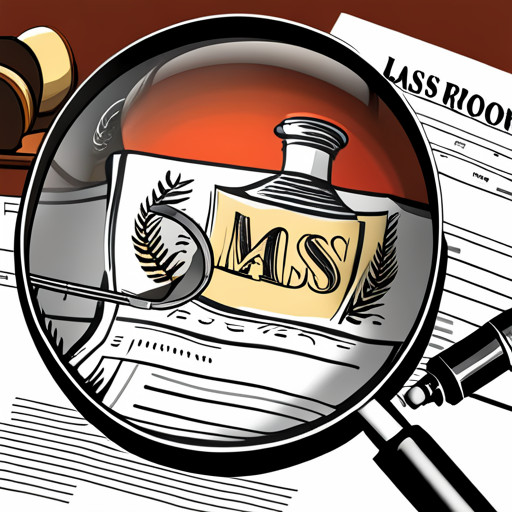Anatomy of Evidence: The Impact of Medical Records in Mass Tort Lawsuits
In the realm of mass tort litigation, medical records function as critical pieces in the puzzle of evidence. Through their objective account of medical conditions, treatments, and outcomes, these records can significantly influence legal proceedings.

However, the process of obtaining, analyzing, and integrating these records into a lawsuit presents unique challenges. This exploration delves into these complexities, considering the privacy laws and their interplay with medical records in tort lawsuits.
Key Takeaways
- Medical records are critical evidence in mass tort lawsuits, playing a pivotal role in determining case outcomes and establishing a connection between the plaintiff's condition and the defendant's alleged misconduct.
- Lawyers face challenges in navigating the complexities of healthcare documentation, including varying record-keeping protocols and compliance with regulations like HIPAA.
- Missing or incomplete information in medical records can significantly affect the outcome of a mass tort lawsuit.
- The digitization of medical records has both benefits and challenges, including the susceptibility to tampering and the need for addressing compatibility and standardization issues.
Understanding the Role of Medical Records in Lawsuits

The role of medical records in lawsuits is paramount as they serve as critical evidence in establishing the validity of health-related claims and determining the degree of medical negligence, if any. With the technological advancement, many healthcare facilities have transitioned from paper-based systems to digital platforms, thus digitizing records. This digitization allows for comprehensive, easy, and rapid access to patient information, enabling attorneys to efficiently analyze the data and build a robust case.
However, while digitizing records has numerous benefits, it also introduces the risk of misinterpreted data. The complexity of medical terminology and procedures can lead to incorrect interpretation, compromising the integrity of the evidence. Therefore, it is essential for legal professionals to possess a comprehensive understanding of medical terminology and procedures to accurately decipher the information contained in these records.
Furthermore, the use of electronic health records (EHRs) in digitizing records has raised concerns about data security and privacy. Unauthorized access to these digital records can result in breach of patient confidentiality, which can undermine the credibility of the evidence in lawsuits. Therefore, healthcare facilities need to ensure the implementation of robust security measures to safeguard the privacy and integrity of patient data.
Moreover, the transition to digitizing records has necessitated the need for extensive training for healthcare professionals and legal personnel alike. This training is aimed at ensuring accuracy in data entry and interpretation, which is critical in preventing misinterpreted data.
The Significance of Medical Evidence in Mass Tort Litigation

Significance of health-related documentation in large-scale legal disputes cannot be overstated, as it often plays a pivotal role in determining the outcome of these cases. Medical evidence holds substantial weight in mass tort litigation, informing the court's decision on the nature, extent, and cause of alleged injuries. Understanding the intricacies of such data, therefore, is crucial for parties involved in the case.
- Evidence Interpretation: The interpretation of medical records requires a thorough understanding of medical terminology and procedures. Detailed analysis of these documents can corroborate or refute claims made by plaintiffs, affecting the trajectory of the lawsuit.
- Linking Medical Conditions to Alleged Causes: Establishing a connection between the plaintiff's condition and the defendant's alleged misconduct is integral in mass tort litigation. This process often relies on the scrutiny of medical records, which may provide insights into the onset and progression of the disease.
- Litigation Ethics: The handling of medical evidence must adhere to high ethical standards, given its sensitive nature. Misinterpretation or manipulation of such data can lead to grave injustices, underscoring the need for utmost integrity in dealing with health-related documentation.
Medical evidence interpretation in mass tort lawsuits, therefore, is not just a matter of technical expertise. It also requires an unwavering commitment to litigation ethics. Missteps in this regard can lead to serious consequences, including the dismissal of legitimate claims or the unjustified punishment of defendants.
Thus, the role of medical records in such cases extends beyond mere documentation, contributing significantly to the pursuit of justice.
How Medical Records Influence the Outcome of Legal Proceedings

The influence of medical records on the resolution of legal proceedings constitutes a pivotal aspect of mass tort litigation. As crucial pieces of evidence, these documents, steeped in medical terminology and rich with details of patient care procedures, can significantly sway case outcomes, underlining their role as compelling legal proof.
However, their use in such a context inevitably raises profound concerns regarding patient privacy, thereby ushering in a nuanced discourse on the balance between legal necessity and privacy rights in the realm of healthcare litigation.
Role in Case Outcome
Medical records serve as crucial pieces of evidence in mass tort lawsuits, often dictating the outcome of such cases. However, issues such as Evidence Tampering and Record Authenticity can significantly impact these proceedings. Detailed examination of medical terminologies and procedures is therefore imperative.
- Evidence Tampering refers to the alteration, destruction, or falsification of medical documents. This unethical practice can distort the factual basis of a lawsuit, leading to unfair rulings.
- Record Authenticity pertains to the legitimacy and credibility of medical records. Verification methods include cross-checking patient information, medical procedures conducted, and the consistency of medical terminologies used.
- Understanding medical procedures and terminologies is vital as it aids in comprehending the patient's condition and treatments received. This analysis can impact the judgment of whether the defendant's negligence caused the plaintiff's harm.
Records as Legal Proof
Utilization of healthcare documentation in legal proceedings serves as irrefutable proof, substantiating claims of negligence or malpractice. The process of proof authentication involves rigorous examination of such records, ensuring their validity and reliability. Record tampering, a serious violation, may lead to significant legal implications, undermining the credibility of the evidence.
| Medical Records in Law | Proof Authentication | Record Tampering |
|---|---|---|
| Legal Proof | Examination of records | Alteration of documents |
| Substantiate Claims | Validity and reliability | Legal implications |
| Negligence or Malpractice | Ensuring authenticity | Undermines credibility |
Implications on Patient Privacy
Implications on patient privacy emerge as a significant concern with the use of healthcare documentation in legal proceedings. This concern becomes paramount when privacy breaches occur, potentially leading to a loss of trust in healthcare providers and systems. Patient consent, a fundamental principle in healthcare, often becomes muddled in these circumstances.
Unauthorized access to medical records can amount to privacy breaches, with serious consequences for both patients and healthcare providers.
Ambiguities surrounding patient consent for the use of medical records in legal cases can lead to ethical and legal dilemmas.
The balance between the need for evidence in legal proceedings and the protection of patient privacy presents a complex challenge.
Thus, careful consideration and stringent measures are required to ensure patient privacy while utilizing healthcare documentation in legal scenarios.
The Process of Collecting and Analyzing Medical Records for Lawsuits

In the realm of mass tort lawsuits, the collection and analysis of medical records plays a crucial role in establishing evidence. This process involves a systematic approach that encompasses record retrieval techniques and ethical considerations.
Record retrieval techniques require a comprehensive understanding of medical terminology and procedures. Medical records must be procured in a structured and organized manner to ensure that all relevant information is obtained. This involves experts with strong analytical skills who can effectively decipher and interpret complex medical data. These experts should be adept at identifying key pieces of information that could serve as potent evidence in a lawsuit.
Moreover, the retrieval of medical records must be done within the bounds of ethical considerations. Confidentiality and privacy are paramount in the medical field, thus, these must be upheld even in the course of obtaining records for legal proceedings. In adherence to ethical standards, the retrieval process must respect the rights of the patient. This includes obtaining informed consent, ensuring the use of information is limited to the scope of the lawsuit, and maintaining stringent security measures to protect the data.
In analyzing the medical records, a detailed, meticulous approach is necessary. It is crucial to establish any causal connections between the alleged injury or illness and the defendant's action or product. This requires not only a deep understanding of the medical condition at hand but also the ability to draw logical inferences from a vast array of medical data.
Challenges Lawyers Face When Dealing With Medical Records in Tort Cases

Navigating the complexities of healthcare documentation presents a formidable challenge for legal practitioners engaged in personal injury litigation. Record Retrieval Complexity and Expert Testimony Challenges blend into a mosaic of uncertainty and intricacy, making the process of accessing, understanding, and utilizing medical records in tort cases a daunting task.
The Record Retrieval Complexity stems from the intricacies of the healthcare system. Different institutions follow varying record-keeping protocols, and the process of obtaining these records can be convoluted. The need to comply with regulations such as the Health Insurance Portability and Accountability Act (HIPAA) adds another layer of complexity.
Expert Testimony Challenges arise due to the technical nature of medical records. Legal practitioners often require expert witnesses to interpret these records and provide testimony, yet finding a qualified professional who can articulate their knowledge in a comprehensible manner for the court can be challenging.
Further complications legal practitioners face when dealing with medical records in tort cases include:
- Diverse formats and structures of medical records, which can lead to confusion and misinterpretation.
- The potential for missing or incomplete information, which can significantly affect the outcome of a case.
- The necessity of maintaining patient confidentiality while using these records for legal purposes.
Understanding the intricacies of medical terminology and procedures is vital for successfully navigating these challenges. Strong analytical skills are also essential to decipher the information contained within these records and utilize it effectively in personal injury litigation.
The Interplay of Privacy Laws and Medical Records in Tort Lawsuits

The interplay between privacy laws and medical records in tort lawsuits is a complex matrix. The Health Insurance Portability and Accountability Act (HIPAA) plays a central role in questioning the balance between patient privacy and justice. An examination of HIPAA's role brings to light the intricate ways in which it governs the release of medical information, while simultaneously striving to uphold the patient's right to privacy.
However, this balance is often fraught with tension. The admissibility of medical records in court proceedings can pose significant challenges, especially in the context of tort lawsuits. In these cases, the disclosure of medical information can be a pivotal factor in the outcome.
HIPAA’s Role
HIPAA's role in the context of mass tort lawsuits involves providing guidelines for the protection and confidential handling of medical records. As an integral part of the legal framework, HIPAA ensures that the rights of patients are not violated during the process of evidence collection and usage.
The Act stipulates stringent penalties for any HIPAA Violations, aiming to deter unauthorized access or dissemination of medical data.
It mandates Patient Consent for any disclosure of medical information, ensuring that patients have control over their personal data.
HIPAA also provides provisions for redressal in case of information misuse, reinforcing the patients' rights.
Therefore, by setting these ethical and legal boundaries, HIPAA plays a crucial role in balancing the need for medical evidence in mass tort lawsuits with the privacy rights of individual patients.
Balancing Privacy and Justice
Having explored the implications of HIPAA, the focus now shifts to the equilibrium of privacy and justice in the context of medical records in mass tort lawsuits. This junction presents multifaceted privacy dilemmas, most notably the paradox of safeguarding sensitive health data while ensuring justice.
The following table elucidates the key points of contention:
| Privacy Concerns | Health Data Security Approaches | Impact on Justice |
| Inadvertent disclosure of sensitive data | Implement stringent data encryption and access controls | Possible impediment in information availability for justice |
| Unauthorized access and data breaches | Employ robust intrusion detection systems | Could potentially limit the accessibility to relevant parties |
| Misuse of health data by third parties | Enforce strict data sharing protocols | Might obstruct the seamless sharing of crucial evidence |
In the milieu of mass tort litigations, it is imperative to strike a delicate balance, which safeguards privacy without compromising on justice.
Medical Records’ Admissibility
Admissibility of health-related documents in legal proceedings, a nuanced subject, raises questions about privacy, justice, and the integrity of the judicial process. The cardinal aspect of this admissibility revolves around two major factors: Record Authenticity and Documentation Errors.
Record Authenticity: It is critical for medical records to be authentic and unaltered, as they are often pivotal in court proceedings. The integrity of these documents can significantly influence judgments.
Documentation Errors: These can range from minor discrepancies to significant inconsistencies that could potentially alter a lawsuit's outcome.
Legal Implications: Erroneous or fraudulent records can result in miscarriages of justice, undermining the judicial process.
In-depth analysis of these factors elucidates the complexities and challenges associated with the admissibility of medical records in legal contexts.
Case Studies: The Impact of Medical Records in Mass Tort Lawsuits

Several case studies highlight the crucial role that medical records play in shaping the outcomes of mass tort lawsuits. The digitization of these records, while beneficial in many aspects, presents unique challenges that can directly impact the course and end result of these legal proceedings.
One prevalent issue is the susceptibility of digital medical records to tampering. Given their electronic nature, alterations can be made with ease, often leaving no trace of the original data. This vulnerability threatens the integrity of the evidence, as manipulations could potentially misrepresent the patient's medical history and condition.
A case in point is the 2015 mass tort lawsuit involving a pharmaceutical company accused of concealing harmful side effects of its drug. In the course of the trial, it was discovered that certain key medical records of plaintiffs were altered, casting doubt on the credibility of the evidence. The incident led to a thorough investigation of the digitization process and the introduction of stringent measures to prevent such occurrences.
Another challenge of digitization is the matter of compatibility and standardization of systems. With the proliferation of diverse electronic health record systems, there is a lack of uniformity that complicates the process of information exchange. This can result in an incomplete or distorted view of a patient's medical history, thereby affecting the interpretation of evidence in mass tort lawsuits.
Frequently Asked Questions
What Qualifications Do Lawyers Need to Effectively Interpret and Analyze Medical Records?
Effective interpretation and analysis of medical records by lawyers necessitates comprehensive understanding of medical terminology and procedures, honed through record comprehension training. This expertise is further fortified by strong analytical skills.
Collaboration with medical professionals is equally important, providing a multidisciplinary approach to understanding the complexities of medical records.
These qualifications enhance the lawyers' ability to discern critical details, thereby strengthening their case in mass tort lawsuits.
How Does the Digitization of Medical Records Affect Mass Tort Lawsuits?
The digitization of medical records introduces both benefits and challenges in mass tort lawsuits. Research indicates an increase in lawsuits efficiency due to instant access to electronic records. However, digital archive challenges, such as data integrity and authenticity, pose concerns.
The process of electronic record verification becomes critical, necessitating comprehensive understanding of medical terminology, procedures, and strong analytical skills. Thus, while digitization streamlines the process, it also necessitates rigorous verification protocols.
Are There Any Specific Procedures for Safeguarding the Privacy of Medical Records During Litigation?
In litigation, certain procedures are indeed in place to safeguard the privacy of medical records. These measures aim to prevent privacy violations and enhance record accessibility only to authorized parties.
These procedures include de-identification, secure storage, and restricted access protocols. However, breaches can occur due to human error or system vulnerabilities, highlighting the need for continuous review and improvement of these safeguards.
How Might a Medical Professional’s Note-Taking Habits Influence the Outcome of a Lawsuit?
The note-taking habits of medical professionals can significantly influence the outcome of lawsuits. Precise and comprehensive record-keeping adhering to note-taking ethics can support credibility, while inconsistent, incomplete, or altered records can lead to suspicion and potential record alteration consequences.
Therefore, meticulous documentation is not only a cornerstone of patient care, but also serves as a solid defence in litigation.
Hence, the importance of good note-taking habits in healthcare cannot be overemphasized.
What Are the Implications for a Case if a Medical Record Is Found to Be Tampered With?
Implications of tampering with medical records in a case are significant. Record authenticity becomes questionable, potentially undermining the credibility of the evidence. This could lead to a dismissal of the case or serious legal consequences for the party involved in the tampering.
Additionally, it could compromise the comprehensive understanding of medical procedures and terminology, thereby affecting the analytical skills applied in the case analysis.
Thus, tampering consequences are far-reaching and detrimental to all involved parties.
Conclusion
In conclusion, the intricate dance of the courtroom is akin to a medical procedure, where each stitch, or piece of evidence, meticulously contributes to the final outcome.
Medical records, like a surgeon's scalpel, can cut through the ambiguity, highlighting the truth in mass tort lawsuits. Their pivotal role, encased within the interplay of privacy laws and the challenges faced by lawyers, substantiates their influence in shaping the legal landscape.
The task is arduous, but the rewards, much like a successful operation, are significant.

This post has been generated by AI and was not reviewed by editors. This is Not legal advice. Please consult with an attorney.




